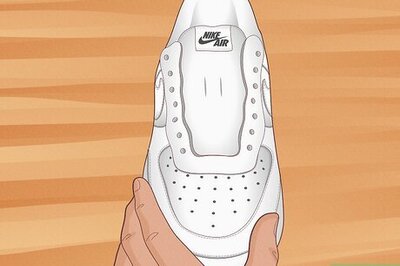
views
Chicago: US researchers are closing in on tests that can detect biological signs of Alzheimer's disease, an advance that would improve diagnosis and help in the search for treatments for the mind-robbing disease.
A team at Eli Lilly and Co's newly acquired Avid Radiopharmaceuticals said on Tuesday its imaging agent was highly accurate as detecting a protein linked with Alzheimer's disease in a late-stage clinical trial.
And a study led by Dr Kristine Yaffe at the San Francisco Veterans Affairs Medical Center suggests a blood test could predict if a patient is at risk for dementia years before symptoms occur.
Both studies, reported in the Journal of the American Medical Association, focus on biological signs of disease, or biomarkers. They are part of a broad effort by researchers to detect early Alzheimer's, the most common form of dementia.
Alzheimer's affects 26 million people globally and costs $604 billion to treat. It is diagnosed by symptoms, and only confirmed by examining the brain in an autopsy after death.
Avid is leading a three-way race with General Electric Co and Bayer AG to be the first to market an imaging agent that can detect Alzheimer's while people are still alive. This week an advisory panel of the US Food and Drug Administration is reviewing Avid's bid to use the compound to rule out Alzheimer's disease.
Avid's drug, known as Florbetapir F18, works with positron emission tomography, or PET scanners. The chemical sticks to and highlights deposits of beta amyloid, a protein that forms clumps in the brains of people with Alzheimer's.
The company's trial involved gravely ill patients who consented to an autopsy when they died. It aimed to prove that the same clumps of amyloid that showed up on brain scans were present at autopsy in the people who had Alzheimer's.
"It was highly successful," said Dr Daniel Skovronsky, founder and chief executive of Avid, which was acquired by Eli Lilly in December for up to $800 million.
The PET scans matched autopsy results 96 percent of the time in 29 people.
"It met all of its endpoints with statistical significance and demonstrated that Florbetapir is imaging amyloid plaques in the brain," Skovronsky said.
If approved, the team said the drug would be used to exclude Alzheimer's from other potentially treatable causes of memory loss like stroke, tumors or depression.
BLOOD TEST?
Yaffe's findings are the latest example of a potential blood test that could be used to screen for early signs of Alzheimer's disease.
Several teams have found that low levels of certain forms of beta amyloid in spinal fluid suggest it is accumulating in the brain, but that involves a spinal tap. Yaffe wanted to see if they could find a similar relationship in the blood.
They studied 997 older, healthy adults who were given blood tests and tests to assess their cognitive ability. The team found that older adults with lower levels of beta amyloid had a higher risk of mental decline over nine years.
But, people in the study who had built up a so-called cognitive reserve by being well-educated and staying mentally active were less likely to develop dementia, the team found.
Yaffe said the findings suggest it may be possible to detect people who are at risk for dementia. And, like many other studies, it suggests mental training activities might be a way to keep dementia at bay.
Skovronsky foresees blood tests being used in widespread screening, much like a prostate-specific antigen, or PSA, test is used to screen for prostate cancer. PET scans could then be used to rule out Alzheimer's disease.
But William Thies, chief medical and scientific officer of the Alzheimer's Association, said it is still not clear what role amyloid imaging will play.
"We need more research to understand more about the appropriate use, if any, of florbetapir-PET imaging in the diagnosis of Alzheimer's," he said in a statement.



















Comments
0 comment